Browse Person - 1122 results
Sort
Értesíto. A Szociális Missziótársulat és a vele cooperáló kath. noi egyesületek lapja, Vol. 2, No. 2, 1913
(Országos Széchényi Könyvtár [National Széchényi Library]), in Értesítő. A Szociális Missziótársulat és a vele cooperáló kath. női egyesületek lapja [Information: Journal of the Social Mission Society and the Cooperating Catholic Associations], Vol. 2, No. 2, 1913 (Budapest, Budapest County: Social Mission Society, 1913), 48 page(s)
TITLE: Information: Journal of the Social Mission Society and the Cooperating Catholic Associations, Vol. 2, No. 2. DESCRIPTION: This journal issue is part of a selection of journals documenting the history of the Hungarian-speaking women’s movement in the Hungarian Kingdom in the Habsburg Monarchy. Értesítő...
Sample
(Országos Széchényi Könyvtár [National Széchényi Library]), in Értesítő. A Szociális Missziótársulat és a vele cooperáló kath. női egyesületek lapja [Information: Journal of the Social Mission Society and the Cooperating Catholic Associations], Vol. 2, No. 2, 1913 (Budapest, Budapest County: Social Mission Society, 1913), 48 page(s)
Description
TITLE: Information: Journal of the Social Mission Society and the Cooperating Catholic Associations, Vol. 2, No. 2. DESCRIPTION: This journal issue is part of a selection of journals documenting the history of the Hungarian-speaking women’s movement in the Hungarian Kingdom in the Habsburg Monarchy. Értesítő [Information] was published from 1912 to 1914. All issues available in the Országos Széchényi Könyvtár [Hungarian National Library...
TITLE: Information: Journal of the Social Mission Society and the Cooperating Catholic Associations, Vol. 2, No. 2. DESCRIPTION: This journal issue is part of a selection of journals documenting the history of the Hungarian-speaking women’s movement in the Hungarian Kingdom in the Habsburg Monarchy. Értesítő [Information] was published from 1912 to 1914. All issues available in the Országos Széchényi Könyvtár [Hungarian National Library] are included in this digital archive. The journal was renamed A keresztény nő [The Christian Woman] in 1915 and published until after the end of the Habsburg Monarchy. The Social Mission Society, one of the most active and innovative organizations among the Catholic women’s groups, evolved in the years 1908-1910. Értesítő reported on the activities and the various institutions of the Social Mission Society, and the activities of other Catholic groups. The work of the Catholic organizations and groups focused on educational betterment and rescue (patronázs) work for girls in schools, prisons and other institutions, as well as social welfare work. The Social Mission Society began to engage in systematic training of its members for social work, contributing to the professionalization of social work in Hungary. Értesítő regularly reported on the National Catholic Association for the Protection of Women (Országos Kath. Nővédő Egyesület), and the National Catholic Women’s Association for Betterment and Rescue Work (Országos Kath. Női Patronage-Egyesület). Értesítő also published poems, songs, and edifying literature, as well as more general writings, often by important Catholic authorities, on Catholic social thinking in relation to various social and spiritual agendas. The journal constitutes a key source of information on the Catholic women’s movement in Hungary and its international context. KEYWORDS: Social Reform and Political Activism; Welfare Movements; Political Parties and Other Male Dominated Organizations; Social Work; Work and Class Identity; Gender and Class; Catholic Rescue Work for Mostly Lower-Class Women; Habsburg Empire; Hungary; Margit Ghitay; Matild Kreisel nővér [Sister Matild Kreisel]; Edith Farkas; Lujza Cike; Mrs. Emil Morlin; Mici Stoffer; Vilma Wild; Benedikta nővér [Sister Benedikta Balázs]; Mrs. Ilona B. Balás; Mrs. Kempelen
Show more
Show less
Collection
Women and Social Movements, Modern Empires Since 1820
Field of Study
Women and Social Movements
Content Type
Periodical issue
Date Published / Released
1913
Publisher
Social Mission Society
Series
Értesítő. A Szociális Missziótársulat és a vele cooperáló kath. női egyesületek lapja [Information: Journal of the Social Mission Society and the Cooperating Catholic Associations]
Person Discussed
Mrs. Kempelen, fl. 1913, Ilona Bolgár Balás, 1854-1930, Benedikta Balázs, fl. 1913, Vilma Wild, fl. 1913, Mici Stoffer, fl. 1913, Mrs. Emil Morlin, fl. 1913, Lujza Cike, fl. 1913, Edit Farkas, 1877-1942, Matild Kreisel, fl. 1913, Margit Ghitay, fl. 1913
Topic / Theme
Social Reform and Political Activism, Work and Class Identity, Political and Human Rights, Women and Religion, Women and Education, Political Parties and Other Male Dominated Organizations, Women as “Proletariat”, Class Discrimination, Social and Cultural Rights, Religious Leadership and Religious Activism, Gendered Education, Access to Higher Education, Hungarians
×
Értesíto. A Szociális Missziótársulat és a vele cooperáló kath. noi egyesületek lapja, Vol. 2, No. 3, 1913
(Országos Széchényi Könyvtár [National Széchényi Library]), in Értesítő. A Szociális Missziótársulat és a vele cooperáló kath. női egyesületek lapja [Information: Journal of the Social Mission Society and the Cooperating Catholic Associations], Vol. 2, No. 3, 1913 (Budapest, Budapest County: Social Mission Society, 1913), 48 page(s)
TITLE: Information: Journal of the Social Mission Society and the Cooperating Catholic Associations, Vol. 2, No. 3. DESCRIPTION: This journal issue is part of a selection of journals documenting the history of the Hungarian-speaking women’s movement in the Hungarian Kingdom in the Habsburg Monarchy. Értesítő...
Sample
(Országos Széchényi Könyvtár [National Széchényi Library]), in Értesítő. A Szociális Missziótársulat és a vele cooperáló kath. női egyesületek lapja [Information: Journal of the Social Mission Society and the Cooperating Catholic Associations], Vol. 2, No. 3, 1913 (Budapest, Budapest County: Social Mission Society, 1913), 48 page(s)
Description
TITLE: Information: Journal of the Social Mission Society and the Cooperating Catholic Associations, Vol. 2, No. 3. DESCRIPTION: This journal issue is part of a selection of journals documenting the history of the Hungarian-speaking women’s movement in the Hungarian Kingdom in the Habsburg Monarchy. Értesítő [Information] was published from 1912 to 1914. All issues available in the Országos Széchényi Könyvtár [Hungarian National Library...
TITLE: Information: Journal of the Social Mission Society and the Cooperating Catholic Associations, Vol. 2, No. 3. DESCRIPTION: This journal issue is part of a selection of journals documenting the history of the Hungarian-speaking women’s movement in the Hungarian Kingdom in the Habsburg Monarchy. Értesítő [Information] was published from 1912 to 1914. All issues available in the Országos Széchényi Könyvtár [Hungarian National Library] are included in this digital archive. The journal was renamed A keresztény nő [The Christian Woman] in 1915 and published until after the end of the Habsburg Monarchy. The Social Mission Society, one of the most active and innovative organizations among the Catholic women’s groups, evolved in the years 1908-1910. Értesítő reported on the activities and the various institutions of the Social Mission Society, and the activities of other Catholic groups. The work of the Catholic organizations and groups focused on educational betterment and rescue (patronázs) work for girls in schools, prisons and other institutions, as well as social welfare work. The Social Mission Society began to engage in systematic training of its members for social work, contributing to the professionalization of social work in Hungary. Értesítő regularly reported on the National Catholic Association for the Protection of Women (Országos Kath. Nővédő Egyesület), and the National Catholic Women’s Association for Betterment and Rescue Work (Országos Kath. Női Patronage-Egyesület). Értesítő also published poems, songs, and edifying literature, as well as more general writings, often by important Catholic authorities, on Catholic social thinking in relation to various social and spiritual agendas. The journal constitutes a key source of information on the Catholic women’s movement in Hungary and its international context. KEYWORDS: Social Reform and Political Activism; Welfare Movements; Political Parties and Other Male Dominated Organizations; Social Work; Work and Class Identity; Gender and Class; Catholic Rescue Work for Mostly Lower-Class Women; Habsburg Empire; Hungary; Margit Ghitay; Margit Slachta nővér [Sister Margit Slachta]; Bokor Erzsébet nővér [Sister Erzsébet Bokor];Angela Szerényi nővér [Sister Angela Szerényi]; Matild Kreisel nővér [Sister Matild Kreisel]; Hedvig Batisweiler; Mrs. Dr. István Scheneck; Mrs. Kálmán Slachta; Mrs. Pál Pálffy; Mrs .Balás Ilona Bolgár; Szerén Borosnyai; Mrs. Rezső Beliczei; Magda Gubányi; Mrs. Gábor Kerese; Mrs. József Kokas; Ilonka Kokas; Baroness Géza Manndorf; Mrs. Pál Mayer; Ilus [Ilona] Mezei; Rózsi Szammer; Mária Csemez
Show more
Show less
Collection
Women and Social Movements, Modern Empires Since 1820
Field of Study
Women and Social Movements
Content Type
Periodical issue
Date Published / Released
1913
Publisher
Social Mission Society
Series
Értesítő. A Szociális Missziótársulat és a vele cooperáló kath. női egyesületek lapja [Information: Journal of the Social Mission Society and the Cooperating Catholic Associations]
Person Discussed
Ilona Bolgár Balás, 1854-1930, Mrs. Pál Pálffy, fl. 1913, Mrs. Kálmán Slachta, fl. 1913, Mrs. István Schenek, fl. 1914, Hedvig Batisweiler, fl. 1913, Matild Kreisel, fl. 1913, Angela Szerényi, fl. 1913, Erzsébet Bokor, fl. 1913, Margit Slachta, 1884-1974, Margit Ghitay, fl. 1913, Mária Csemez, fl. 1913, Rózsi Szammer, fl. 1913, Ilus Mezei, fl. 1913, Mrs. Pál Mayer, fl. 1913, Géza Mann...
Ilona Bolgár Balás, 1854-1930, Mrs. Pál Pálffy, fl. 1913, Mrs. Kálmán Slachta, fl. 1913, Mrs. István Schenek, fl. 1914, Hedvig Batisweiler, fl. 1913, Matild Kreisel, fl. 1913, Angela Szerényi, fl. 1913, Erzsébet Bokor, fl. 1913, Margit Slachta, 1884-1974, Margit Ghitay, fl. 1913, Mária Csemez, fl. 1913, Rózsi Szammer, fl. 1913, Ilus Mezei, fl. 1913, Mrs. Pál Mayer, fl. 1913, Géza Manndorf, Baroness, fl. 1913, Ilonka Kokas, fl. 1913, Mrs. József Kokas, fl. 1913, Mrs. Gábor Kerese, fl. 1913, Magda Gubányi, fl. 1913, Mrs. Rezső Beliczei, fl. 1913, Szerén Borosnyai, fl. 1913
Show more
Show less
Topic / Theme
Women and Education, Work and Class Identity, Political and Human Rights, Women and Religion, Social Reform and Political Activism, Access to Higher Education, Women as “Proletariat”, Class Discrimination, Social and Cultural Rights, Religious Leadership and Religious Activism, Political Parties and Other Male Dominated Organizations, Gendered Education, Hungarians
×
Értesíto. A Szociális Missziótársulat és a vele cooperáló kath. noi egyesületek lapja, Vol. 2, No. 4, 1913
(Országos Széchényi Könyvtár [National Széchényi Library]), in Értesítő. A Szociális Missziótársulat és a vele cooperáló kath. női egyesületek lapja [Information: Journal of the Social Mission Society and the Cooperating Catholic Associations], Vol. 2, No. 4, 1913 (Budapest, Budapest County: Social Mission Society, 1913), 42 page(s)
TITLE: Information: Journal of the Social Mission Society and the Cooperating Catholic Associations, Vol. 2, No. 4. DESCRIPTION: This journal issue is part of a selection of journals documenting the history of the Hungarian-speaking women’s movement in the Hungarian Kingdom in the Habsburg Monarchy. Értesítő...
Sample
(Országos Széchényi Könyvtár [National Széchényi Library]), in Értesítő. A Szociális Missziótársulat és a vele cooperáló kath. női egyesületek lapja [Information: Journal of the Social Mission Society and the Cooperating Catholic Associations], Vol. 2, No. 4, 1913 (Budapest, Budapest County: Social Mission Society, 1913), 42 page(s)
Description
TITLE: Information: Journal of the Social Mission Society and the Cooperating Catholic Associations, Vol. 2, No. 4. DESCRIPTION: This journal issue is part of a selection of journals documenting the history of the Hungarian-speaking women’s movement in the Hungarian Kingdom in the Habsburg Monarchy. Értesítő [Information] was published from 1912 to 1914. All issues available in the Országos Széchényi Könyvtár [Hungarian National Library...
TITLE: Information: Journal of the Social Mission Society and the Cooperating Catholic Associations, Vol. 2, No. 4. DESCRIPTION: This journal issue is part of a selection of journals documenting the history of the Hungarian-speaking women’s movement in the Hungarian Kingdom in the Habsburg Monarchy. Értesítő [Information] was published from 1912 to 1914. All issues available in the Országos Széchényi Könyvtár [Hungarian National Library] are included in this digital archive. The journal was renamed A keresztény nő [The Christian Woman] in 1915 and published until after the end of the Habsburg Monarchy. The Social Mission Society, one of the most active and innovative organizations among the Catholic women’s groups, evolved in the years 1908-1910. Értesítő reported on the activities and the various institutions of the Social Mission Society, and the activities of other Catholic groups. The work of the Catholic organizations and groups focused on educational betterment and rescue (patronázs) work for girls in schools, prisons and other institutions, as well as social welfare work. The Social Mission Society began to engage in systematic training of its members for social work, contributing to the professionalization of social work in Hungary. Értesítő regularly reported on the National Catholic Association for the Protection of Women (Országos Kath. Nővédő Egyesület), and the National Catholic Women’s Association for Betterment and Rescue Work (Országos Kath. Női Patronage-Egyesület). Értesítő also published poems, songs, and edifying literature, as well as more general writings, often by important Catholic authorities, on Catholic social thinking in relation to various social and spiritual agendas. The journal constitutes a key source of information on the Catholic women’s movement in Hungary and its international context. KEYWORDS: Social Reform and Political Activism; Welfare Movements; Political Parties and Other Male Dominated Organizations; Social Work; Work and Class Identity; Gender and Class; Catholic Rescue Work for Mostly Lower-Class Women; Habsburg Empire; Hungary; Margit Ghitay; Mrs. Nándor Báthory; Mrs. Péter Sróth; Margit nővér [Sister Margit Slachta]; Mrs. István Schenek; Benedikta nővér [Sister Benedikta Balázs]; Lenke Gajzágó; Honória Havas; Ilonka [Ilona] Havas; Mrs. Pál Mayer; Mariska Rónai; Mrs. Endre Sereghy M.; Lili Bolgár; Mrs. Aladár Simay: Matild Kreisel nővér [Sister Matild Kreisel]; Edith Farkas; Mrs. Coriolán Jucu; Countess Anna Pálffy; Mrs. Sándor Rejthő; Mrs. Ede Krisztinkovits; Mici Stoffer; Mrs. Nándor Báthory
Show more
Show less
Collection
Women and Social Movements, Modern Empires Since 1820
Field of Study
Women and Social Movements
Content Type
Periodical issue
Date Published / Released
1913
Publisher
Social Mission Society
Series
Értesítő. A Szociális Missziótársulat és a vele cooperáló kath. női egyesületek lapja [Information: Journal of the Social Mission Society and the Cooperating Catholic Associations]
Person Discussed
Mrs. István Schenek, fl. 1914, Mrs. Péter Sróth, fl. 1914, Margit Slachta, 1884-1974, Ida Száhlender Károly, fl. 1911, Margit Ghitay, fl. 1913, Mici Stoffer, fl. 1913, Ede Krisztinkovits, fl. 1913, Mrs. Sándor Rejthő, fl. 1913, Countess Anna Pálffy, fl. 1913, Mrs. Coriolán Jucu, fl. 1913, Edit Farkas, 1877-1942, Matild Kreisel, fl. 1913, Mrs. Aladár Simay, fl. 1913, Lili Bolgár, fl. 191...
Mrs. István Schenek, fl. 1914, Mrs. Péter Sróth, fl. 1914, Margit Slachta, 1884-1974, Ida Száhlender Károly, fl. 1911, Margit Ghitay, fl. 1913, Mici Stoffer, fl. 1913, Ede Krisztinkovits, fl. 1913, Mrs. Sándor Rejthő, fl. 1913, Countess Anna Pálffy, fl. 1913, Mrs. Coriolán Jucu, fl. 1913, Edit Farkas, 1877-1942, Matild Kreisel, fl. 1913, Mrs. Aladár Simay, fl. 1913, Lili Bolgár, fl. 1913, Mrs. Endre Sereghy, fl. 1913, Mariska Rónai, fl. 1913, Mrs. Pál Mayer, fl. 1913, lonka Havas, fl. 1913, Honória Havas, fl. 1913, Lenke Gajzágó, fl. 1913
Show more
Show less
Topic / Theme
Social Reform and Political Activism, Work and Class Identity, Political and Human Rights, Women and Religion, Women and Education, Political Parties and Other Male Dominated Organizations, Women as “Proletariat”, Class Discrimination, Social and Cultural Rights, Religious Leadership and Religious Activism, Gendered Education, Access to Higher Education, Hungarians
×
Értesíto. A Szociális Missziótársulat és a vele cooperáló kath. noi egyesületek lapja, Vol. 3, No. 1, 1914
(Országos Széchényi Könyvtár [National Széchényi Library]), in Értesítő. A Szociális Missziótársulat és a vele cooperáló kath. női egyesületek lapja [Information: Journal of the Social Mission Society and the Cooperating Catholic Associations], Vol. 3, No. 1, 1914 (Budapest, Budapest County: Social Mission Society, 1914), 36 page(s)
TITLE: Information: Journal of the Social Mission Society and the Cooperating Catholic Associations, Vol. 3, No. 1. DESCRIPTION: This journal issue is part of a selection of journals documenting the history of the Hungarian-speaking women’s movement in the Hungarian Kingdom in the Habsburg Monarchy. Értesítő...
Sample
(Országos Széchényi Könyvtár [National Széchényi Library]), in Értesítő. A Szociális Missziótársulat és a vele cooperáló kath. női egyesületek lapja [Information: Journal of the Social Mission Society and the Cooperating Catholic Associations], Vol. 3, No. 1, 1914 (Budapest, Budapest County: Social Mission Society, 1914), 36 page(s)
Description
TITLE: Information: Journal of the Social Mission Society and the Cooperating Catholic Associations, Vol. 3, No. 1. DESCRIPTION: This journal issue is part of a selection of journals documenting the history of the Hungarian-speaking women’s movement in the Hungarian Kingdom in the Habsburg Monarchy. Értesítő [Information] was published from 1912 to 1914. All issues available in the Országos Széchényi Könyvtár [Hungarian National Library...
TITLE: Information: Journal of the Social Mission Society and the Cooperating Catholic Associations, Vol. 3, No. 1. DESCRIPTION: This journal issue is part of a selection of journals documenting the history of the Hungarian-speaking women’s movement in the Hungarian Kingdom in the Habsburg Monarchy. Értesítő [Information] was published from 1912 to 1914. All issues available in the Országos Széchényi Könyvtár [Hungarian National Library] are included in this digital archive. The journal was renamed A keresztény nő [The Christian Woman] in 1915 and published until after the end of the Habsburg Monarchy. The Social Mission Society, one of the most active and innovative organizations among the Catholic women’s groups, evolved in the years 1908-1910. Értesítő reported on the activities and the various institutions of the Social Mission Society, and the activities of other Catholic groups. The work of the Catholic organizations and groups focused on educational betterment and rescue (patronázs) work for girls in schools, prisons and other institutions, as well as social welfare work. The Social Mission Society began to engage in systematic training of its members for social work, contributing to the professionalization of social work in Hungary. Értesítő regularly reported on the National Catholic Association for the Protection of Women (Országos Kath. Nővédő Egyesület), and the National Catholic Women’s Association for Betterment and Rescue Work (Országos Kath. Női Patronage-Egyesület). Értesítő also published poems, songs, and edifying literature, as well as more general writings, often by important Catholic authorities, on Catholic social thinking in relation to various social and spiritual agendas. The journal constitutes a key source of information on the Catholic women’s movement in Hungary and its international context. KEYWORDS: Social Reform and Political Activism; Welfare Movements; Political Parties and Other Male Dominated Organizations; Social Work; Work and Class Identity; Gender and Class; Catholic Rescue Work for Mostly Lower-Class Women; Habsburg Empire; Hungary; Margit Ghitay; Edith Farkas; Mrs. Nándor Báthory; Júlia Szőgyény-Marich; Mrs. Dr. István Raskó; Mrs. Sándor Óváry; Mrs. Mária Otresovszky; Mrs. Lajos Kanyó; Mrs. János Dolánszky; Margit nővér [Sister Margit, Margit Slachta (1884–1974)]
Show more
Show less
Collection
Women and Social Movements, Modern Empires Since 1820
Field of Study
Women and Social Movements
Content Type
Periodical issue
Date Published / Released
1914
Publisher
Social Mission Society
Series
Értesítő. A Szociális Missziótársulat és a vele cooperáló kath. női egyesületek lapja [Information: Journal of the Social Mission Society and the Cooperating Catholic Associations]
Person Discussed
Margit Slachta, 1884-1974, Mrs. János Dolánszky, fl. 1914, Mrs. Lajos Kanyó, fl. 1914, Mária Otresovszky, fl. 1911, Mrs. Sándor Óváry, fl. 1911, Mrs. Dr. István Raskó, fl. 1911, Julia Szőgyény Marich, fl. 1911, Ida Száhlender Károly, fl. 1911, Edit Farkas, 1877-1942, Margit Ghitay, fl. 1913
Topic / Theme
Women and Education, Work and Class Identity, Political and Human Rights, Women and Religion, Social Reform and Political Activism, Gendered Education, Access to Higher Education, Women as “Proletariat”, Class Discrimination, Social and Cultural Rights, Religious Leadership and Religious Activism, Political Parties and Other Male Dominated Organizations, Hungarians
×
Értesíto. A Szociális Missziótársulat és a vele cooperáló kath. noi egyesületek lapja, Vol. 3, No. 2, 1914
(Országos Széchényi Könyvtár [National Széchényi Library]), in Értesítő. A Szociális Missziótársulat és a vele cooperáló kath. női egyesületek lapja [Information: Journal of the Social Mission Society and the Cooperating Catholic Associations], Vol. 3, No. 2, 1914 (Budapest, Budapest County: Social Mission Society, 1914), 36 page(s)
TITLE: Information: Journal of the Social Mission Society and the Cooperating Catholic Associations, Vol. 3, No. 2. DESCRIPTION: This journal issue is part of a selection of journals documenting the history of the Hungarian-speaking women’s movement in the Hungarian Kingdom in the Habsburg Monarchy. Értesítő...
Sample
(Országos Széchényi Könyvtár [National Széchényi Library]), in Értesítő. A Szociális Missziótársulat és a vele cooperáló kath. női egyesületek lapja [Information: Journal of the Social Mission Society and the Cooperating Catholic Associations], Vol. 3, No. 2, 1914 (Budapest, Budapest County: Social Mission Society, 1914), 36 page(s)
Description
TITLE: Information: Journal of the Social Mission Society and the Cooperating Catholic Associations, Vol. 3, No. 2. DESCRIPTION: This journal issue is part of a selection of journals documenting the history of the Hungarian-speaking women’s movement in the Hungarian Kingdom in the Habsburg Monarchy. Értesítő [Information] was published from 1912 to 1914. All issues available in the Országos Széchényi Könyvtár [Hungarian National Library...
TITLE: Information: Journal of the Social Mission Society and the Cooperating Catholic Associations, Vol. 3, No. 2. DESCRIPTION: This journal issue is part of a selection of journals documenting the history of the Hungarian-speaking women’s movement in the Hungarian Kingdom in the Habsburg Monarchy. Értesítő [Information] was published from 1912 to 1914. All issues available in the Országos Széchényi Könyvtár [Hungarian National Library] are included in this digital archive. The journal was renamed A keresztény nő [The Christian Woman] in 1915 and published until after the end of the Habsburg Monarchy. The Social Mission Society, one of the most active and innovative organizations among the Catholic women’s groups, evolved in the years 1908-1910. Értesítő reported on the activities and the various institutions of the Social Mission Society, and the activities of other Catholic groups. The work of the Catholic organizations and groups focused on educational betterment and rescue (patronázs) work for girls in schools, prisons and other institutions, as well as social welfare work. The Social Mission Society began to engage in systematic training of its members for social work, contributing to the professionalization of social work in Hungary. Értesítő regularly reported on the National Catholic Association for the Protection of Women (Országos Kath. Nővédő Egyesület), and the National Catholic Women’s Association for Betterment and Rescue Work (Országos Kath. Női Patronage-Egyesület). Értesítő also published poems, songs, and edifying literature, as well as more general writings, often by important Catholic authorities, on Catholic social thinking in relation to various social and spiritual agendas. The journal constitutes a key source of information on the Catholic women’s movement in Hungary and its international context. KEYWORDS: Social Reform and Political Activism; Welfare Movements; Political Parties and Other Male Dominated Organizations; Social Work; Work and Class Identity; Gender and Class; Catholic Rescue Work for Mostly Lower-Class Women; Habsburg Empire; Hungary; Margit Ghitay; Benedikta nővér [Sister Benedikta Balázs]; Edith Farkas; Countess Mrs. Károly Zichy; Boriska Halmy; Mrs. Dr. Pál Angyal; Vilma Vilt; Mrs. Pál Mayer; Mrs. Kristó Alexy; Klotild Melegh E.; Matild Kreisel [Matild nővér – Sister Matild]
Show more
Show less
Collection
Women and Social Movements, Modern Empires Since 1820
Field of Study
Women and Social Movements
Content Type
Periodical issue
Date Published / Released
1914
Publisher
Social Mission Society
Series
Értesítő. A Szociális Missziótársulat és a vele cooperáló kath. női egyesületek lapja [Information: Journal of the Social Mission Society and the Cooperating Catholic Associations]
Person Discussed
Edit Farkas, 1877-1942, Benedikta Balázs, fl. 1913, Margit Ghitay, fl. 1913, Countess Mrs. Károly Zichy, fl. 1820, Boriska Halmy, fl. 1913, Mrs. Dr. Pál Angyal, fl. 1913, Vilma Vilt, fl. 1913, Mrs. Pál Mayer, fl. 1913, Mrs. Kristó Alexy, fl. 1913, Klotild Meleg, fl. 1913, Matild Kreisel, fl. 1913
Topic / Theme
Women and Education, Work and Class Identity, Political and Human Rights, Women and Religion, Social Reform and Political Activism, Gendered Education, Access to Higher Education, Women as “Proletariat”, Class Discrimination, Social and Cultural Rights, Religious Leadership and Religious Activism, Political Parties and Other Male Dominated Organizations, Hungarians
×
Értesíto. A Szociális Missziótársulat és a vele cooperáló kath. noi egyesületek lapja, Vol. 3, No. 3, 1914
(Országos Széchényi Könyvtár [National Széchényi Library]), in Értesítő. A Szociális Missziótársulat és a vele cooperáló kath. női egyesületek lapja [Information: Journal of the Social Mission Society and the Cooperating Catholic Associations], Vol. 3, No. 3, 1914 (Budapest, Budapest County: Social Mission Society, 1914), 28 page(s)
TITLE: Information: Journal of the Social Mission Society and the Cooperating Catholic Associations, Vol. 3, No. 3. DESCRIPTION: This journal issue is part of a selection of journals documenting the history of the Hungarian-speaking women’s movement in the Hungarian Kingdom in the Habsburg Monarchy. Értesítő...
Sample
(Országos Széchényi Könyvtár [National Széchényi Library]), in Értesítő. A Szociális Missziótársulat és a vele cooperáló kath. női egyesületek lapja [Information: Journal of the Social Mission Society and the Cooperating Catholic Associations], Vol. 3, No. 3, 1914 (Budapest, Budapest County: Social Mission Society, 1914), 28 page(s)
Description
TITLE: Information: Journal of the Social Mission Society and the Cooperating Catholic Associations, Vol. 3, No. 3. DESCRIPTION: This journal issue is part of a selection of journals documenting the history of the Hungarian-speaking women’s movement in the Hungarian Kingdom in the Habsburg Monarchy. Értesítő [Information] was published from 1912 to 1914. All issues available in the Országos Széchényi Könyvtár [Hungarian National Library...
TITLE: Information: Journal of the Social Mission Society and the Cooperating Catholic Associations, Vol. 3, No. 3. DESCRIPTION: This journal issue is part of a selection of journals documenting the history of the Hungarian-speaking women’s movement in the Hungarian Kingdom in the Habsburg Monarchy. Értesítő [Information] was published from 1912 to 1914. All issues available in the Országos Széchényi Könyvtár [Hungarian National Library] are included in this digital archive. The journal was renamed A keresztény nő [The Christian Woman] in 1915 and published until after the end of the Habsburg Monarchy. The Social Mission Society, one of the most active and innovative organizations among the Catholic women’s groups, evolved in the years 1908-1910. Értesítő reported on the activities and the various institutions of the Social Mission Society, and the activities of other Catholic groups. The work of the Catholic organizations and groups focused on educational betterment and rescue (patronázs) work for girls in schools, prisons and other institutions, as well as social welfare work. The Social Mission Society began to engage in systematic training of its members for social work, contributing to the professionalization of social work in Hungary. Értesítő regularly reported on the National Catholic Association for the Protection of Women (Országos Kath. Nővédő Egyesület), and the National Catholic Women’s Association for Betterment and Rescue Work (Országos Kath. Női Patronage-Egyesület). Értesítő also published poems, songs, and edifying literature, as well as more general writings, often by important Catholic authorities, on Catholic social thinking in relation to various social and spiritual agendas. The journal constitutes a key source of information on the Catholic women’s movement in Hungary and its international context. KEYWORDS: Social Reform and Political Activism; Welfare Movements; Political Parties and Other Male Dominated Organizations; Social Work; Work and Class Identity; Gender and Class; Catholic Rescue Work for Mostly Lower-Class Women; Habsburg Empire; Hungary; Margit Ghitay; Matild Kreisel nővér [Sister Matild Kreisel]; Edith Farkas; Benedikta Balázsnővér [Sister Benedikta Balázs]
Show more
Show less
Collection
Women and Social Movements, Modern Empires Since 1820
Field of Study
Women and Social Movements
Content Type
Periodical issue
Date Published / Released
1914
Publisher
Social Mission Society
Series
Értesítő. A Szociális Missziótársulat és a vele cooperáló kath. női egyesületek lapja [Information: Journal of the Social Mission Society and the Cooperating Catholic Associations]
Person Discussed
Benedikta Balázs, fl. 1913, Edit Farkas, 1877-1942, Matild Kreisel, fl. 1913, Margit Ghitay, fl. 1913
Topic / Theme
Women and Education, Work and Class Identity, Political and Human Rights, Women and Religion, Social Reform and Political Activism, Education as a Source of Women’s Emancipation, Gendered Education, Women as “Proletariat”, Class Discrimination, Social and Cultural Rights, Religious Leadership and Religious Activism, Political Parties and Other Male Dominated Organizations, Hungarians
×
Értesíto. A Szociális Missziótársulat és a vele cooperáló kath. noi egyesületek lapja, Vol. 3, No. 4, 1914
(Országos Széchényi Könyvtár [National Széchényi Library]), in Értesítő. A Szociális Missziótársulat és a vele cooperáló kath. női egyesületek lapja [Information: Journal of the Social Mission Society and the Cooperating Catholic Associations], Vol. 3, No. 4, 1914 (Budapest, Budapest County: Social Mission Society, 1914), 48 page(s)
TITLE: Information: Journal of the Social Mission Society and the Cooperating Catholic Associations, Vol. 3, No. 4. DESCRIPTION: This journal issue is part of a selection of journals documenting the history of the Hungarian-speaking women’s movement in the Hungarian Kingdom in the Habsburg Monarchy. Értesítő...
Sample
(Országos Széchényi Könyvtár [National Széchényi Library]), in Értesítő. A Szociális Missziótársulat és a vele cooperáló kath. női egyesületek lapja [Information: Journal of the Social Mission Society and the Cooperating Catholic Associations], Vol. 3, No. 4, 1914 (Budapest, Budapest County: Social Mission Society, 1914), 48 page(s)
Description
TITLE: Information: Journal of the Social Mission Society and the Cooperating Catholic Associations, Vol. 3, No. 4. DESCRIPTION: This journal issue is part of a selection of journals documenting the history of the Hungarian-speaking women’s movement in the Hungarian Kingdom in the Habsburg Monarchy. Értesítő [Information] was published from 1912 to 1914. All issues available in the Országos Széchényi Könyvtár [Hungarian National Library...
TITLE: Information: Journal of the Social Mission Society and the Cooperating Catholic Associations, Vol. 3, No. 4. DESCRIPTION: This journal issue is part of a selection of journals documenting the history of the Hungarian-speaking women’s movement in the Hungarian Kingdom in the Habsburg Monarchy. Értesítő [Information] was published from 1912 to 1914. All issues available in the Országos Széchényi Könyvtár [Hungarian National Library] are included in this digital archive. The journal was renamed A keresztény nő [The Christian Woman] in 1915 and published until after the end of the Habsburg Monarchy. The Social Mission Society, one of the most active and innovative organizations among the Catholic women’s groups, evolved in the years 1908-1910. Értesítő reported on the activities and the various institutions of the Social Mission Society, and the activities of other Catholic groups. The work of the Catholic organizations and groups focused on educational betterment and rescue (patronázs) work for girls in schools, prisons and other institutions, as well as social welfare work. The Social Mission Society began to engage in systematic training of its members for social work, contributing to the professionalization of social work in Hungary. Értesítő regularly reported on the National Catholic Association for the Protection of Women (Országos Kath. Nővédő Egyesület), and the National Catholic Women’s Association for Betterment and Rescue Work (Országos Kath. Női Patronage-Egyesület). Értesítő also published poems, songs, and edifying literature, as well as more general writings, often by important Catholic authorities, on Catholic social thinking in relation to various social and spiritual agendas. The journal constitutes a key source of information on the Catholic women’s movement in Hungary and its international context. KEYWORDS: Social Reform and Political Activism; Welfare Movements; Political Parties and Other Male Dominated Organizations; Social Work; Training Course for Social Work; Work and Class Identity; Gender and Class; Catholic Rescue Work for Mostly Lower-Class Women; Habsburg Empire; Hungary; Margit Ghitay; Benedikta nővér [Sister Benedikta Balázs]; Edith Farkas; Baroness Mrs. Frigyes Korányi; Sarolta Korányi; Janka Ábel [Abel]; Róza Ábel [Abel]; Erna Beck; Irén Berényi; Mrs. Zoltán Bittera; Karola Bicskey; Mrs. Dergáts Katica Csausz; Mrs. Román Forché; Mariska Eckermann; Lenke Gajzágó; Mrs. Zoltán Gallovits; Ilona Gyulay; Dr. Margit Györke; Anna Hoffer; Erzsébet [Erzsike] Ikrich; Jolán Hegedűs; Teréz Kárpáthy; Nelly Kárpáthy; Mrs. Gyula Káldy; Mária Kazinczy; Mrs. Károly Kehrer; Hilda Klenk; Mrs. Sándo rKovách; Matild Kreiscl [Kreisel] nővér [Sister Matild Kreisel]; Lenke Krieg; Izabella Kuliffay [Kulifay]; Mrs. Ferenc Lakos; Irén Manger; Natália Mandukič; Mrs. Pál Mayer; Klotild Meleg;Ida Neil; Etelka Obrincsák; Katalin Peitlnővér [SisterKatalinPeitl]; Amália Policsek; Petra Róna nővér [Sister Petra Róna]; Ilona Sárkány; Mrs. Albert Sándor; Stefáni Sándor; Mrs. Kálmán Slachta; Frieda [Fida] Stadler; Teréz Schwarz nővér [Sister Teréz Schwarz]; Angela Szerényi nővér [Sister Angela Szerényi]; Eszter Szerényi nővér [Sister Eszter Szerényi]; Mrs. Károly Személyi; Mihály Szentesi [Szentesy] theol.; Mrs. Ignác Széll; Mrs. Lajos Szűts; Juliska [Júlia] Szűts; Blanka Tököly; Hedvig Urbányi; Anna Winkler; Róza Weisz; Mici Stoffer; Countess Sarolta Zichy
Show more
Show less
Collection
Women and Social Movements, Modern Empires Since 1820
Field of Study
Women and Social Movements
Content Type
Periodical issue
Date Published / Released
1914
Publisher
Social Mission Society
Series
Értesítő. A Szociális Missziótársulat és a vele cooperáló kath. női egyesületek lapja [Information: Journal of the Social Mission Society and the Cooperating Catholic Associations]
Person Discussed
Sarolta Zichy, 1855-1924, Mici Stoffer, fl. 1913, Róza Weisz, fl. 1913, Anna Winkler, fl. 1913, Hedvig Urbányi, fl. 1913, Blanka Tököly, fl. 1913, Juliska Szűts, fl. 1913, Mrs. Lajos Szűts, fl. 1913, Mrs. Ignác Széll, fl. 1913, Mihály Szentesi, fl. 1913, Károly Személyi, fl. 1913, Eszter Szerényi, fl. 1913, Angela Szerényi, fl. 1913, Teréz Schwarz, fl. 1913, Frieda Stadler, fl. 1913,...
Sarolta Zichy, 1855-1924, Mici Stoffer, fl. 1913, Róza Weisz, fl. 1913, Anna Winkler, fl. 1913, Hedvig Urbányi, fl. 1913, Blanka Tököly, fl. 1913, Juliska Szűts, fl. 1913, Mrs. Lajos Szűts, fl. 1913, Mrs. Ignác Széll, fl. 1913, Mihály Szentesi, fl. 1913, Károly Személyi, fl. 1913, Eszter Szerényi, fl. 1913, Angela Szerényi, fl. 1913, Teréz Schwarz, fl. 1913, Frieda Stadler, fl. 1913, Mrs. Kálmán Slachta, fl. 1913, Mrs. Albert Sándor, fl. 1913, Ilona Sárkány, fl. 1913, Petra Róna, fl. 1913, Amália Policsek, fl. 1913, Katalin Peitl, 1890-, Etelka Obrincsák, fl. 1913, Ida Neil, fl. 1913, Klotild Meleg, fl. 1913, Mrs. Pál Mayer, fl. 1913, Natália Mandukič, fl. 1913, Irén Manger, fl. 1913, Mrs. Ferenc Lakos, fl. 1913, Izabella Kuliffay, 1863-1945, Lenke Krieg, fl. 1913, Matild Kreisel, fl. 1913, Mrs. Sándor Kovách, fl. 1913, Hilda Klenk, fl. 1913, Mrs. Károly Kehrer, fl. 1913, Mária Kazinczy, fl. 1913, Mrs. Gyula Káldy, fl. 1911, Nelly Kárpáthy, fl. 1913, Teréz Kárpáthy, 1894-1961, Jolán Hegedűs, fl. 1913, Erzsébet Ikrich, fl. 1913, Anna Hoffer, fl. 1913, Margit Györke, fl. 1913, Ilona Gyulay, fl. 1913, Mrs. Zoltán Gallovits, fl. 1913, Lenke Gajzágó, fl. 1913, Mariska Eckermann, fl. 1913, Mrs. Román Forché, fl. 1913, Mrs. Dergáts Katica Csausz, fl. 1913, Karola Bicskey, fl. 1913, Mrs. Zoltán Bittera, fl. 1913, Irén Berényi, fl. 1913, Erna Beck, fl. 1913, Róza Ábel, fl. 1913, Janka Ábel, fl. 1913, Sarolta Korányi, fl. 1913, Mrs. Frigyes Korányi, Baroness, fl. 1913, Edit Farkas, 1877-1942, Benedikta Balázs, fl. 1913, Margit Ghitay, fl. 1913
Show more
Show less
Topic / Theme
Women and Education, Work and Class Identity, Political and Human Rights, Women and Religion, Social Reform and Political Activism, Gendered Education, Access to Higher Education, Women as “Proletariat”, Class Discrimination, Social and Cultural Rights, Religious Leadership and Religious Activism, Political Parties and Other Male Dominated Organizations, Hungarians
×
Értesíto. A Szociális Missziótársulat és a vele cooperáló kath. noi egyesületek lapja, Vol. 3, No. 5, 1914
(Országos Széchényi Könyvtár [National Széchényi Library]), in Értesítő. A Szociális Missziótársulat és a vele cooperáló kath. női egyesületek lapja [Information: Journal of the Social Mission Society and the Cooperating Catholic Associations], Vol. 3, No. 5, 1914 (Budapest, Budapest County: Social Mission Society, 1914), 30 page(s)
TITLE: Information: Journal of the Social Mission Society and the Cooperating Catholic Associations, Vol. 3, No. 5. DESCRIPTION: This journal issue is part of a selection of journals documenting the history of the Hungarian-speaking women’s movement in the Hungarian Kingdom in the Habsburg Monarchy. Értesítő...
Sample
(Országos Széchényi Könyvtár [National Széchényi Library]), in Értesítő. A Szociális Missziótársulat és a vele cooperáló kath. női egyesületek lapja [Information: Journal of the Social Mission Society and the Cooperating Catholic Associations], Vol. 3, No. 5, 1914 (Budapest, Budapest County: Social Mission Society, 1914), 30 page(s)
Description
TITLE: Information: Journal of the Social Mission Society and the Cooperating Catholic Associations, Vol. 3, No. 5. DESCRIPTION: This journal issue is part of a selection of journals documenting the history of the Hungarian-speaking women’s movement in the Hungarian Kingdom in the Habsburg Monarchy. Értesítő [Information] was published from 1912 to 1914. All issues available in the Országos Széchényi Könyvtár [Hungarian National Library...
TITLE: Information: Journal of the Social Mission Society and the Cooperating Catholic Associations, Vol. 3, No. 5. DESCRIPTION: This journal issue is part of a selection of journals documenting the history of the Hungarian-speaking women’s movement in the Hungarian Kingdom in the Habsburg Monarchy. Értesítő [Information] was published from 1912 to 1914. All issues available in the Országos Széchényi Könyvtár [Hungarian National Library] are included in this digital archive. The journal was renamed A keresztény nő [The Christian Woman] in 1915 and published until after the end of the Habsburg Monarchy. The Social Mission Society, one of the most active and innovative organizations among the Catholic women’s groups, evolved in the years 1908-1910. Értesítő reported on the activities and the various institutions of the Social Mission Society, and the activities of other Catholic groups. The work of the Catholic organizations and groups focused on educational betterment and rescue (patronázs) work for girls in schools, prisons and other institutions, as well as social welfare work. The Social Mission Society began to engage in systematic training of its members for social work, contributing to the professionalization of social work in Hungary. Értesítő regularly reported on the National Catholic Association for the Protection of Women (Országos Kath. Nővédő Egyesület), and the National Catholic Women’s Association for Betterment and Rescue Work (Országos Kath. Női Patronage-Egyesület). Értesítő also published poems, songs, and edifying literature, as well as more general writings, often by important Catholic authorities, on Catholic social thinking in relation to various social and spiritual agendas. The journal constitutes a key source of information on the Catholic women’s movement in Hungary and its international context. KEYWORDS: Social Reform and Political Activism; Welfare Movements; Political Parties and Other Male Dominated Organizations; Social Work; School for Social Work; Work and Class Identity; Gender and Class; Catholic Rescue Work for Mostly Lower-Class Women; Habsburg Empire; Hungary; Margit Ghitay; Benedikta nővér [Sister Benedikta Balázs]; Matild nővér [Sister Matild Kreisel]
Show more
Show less
Collection
Women and Social Movements, Modern Empires Since 1820
Field of Study
Women and Social Movements
Content Type
Periodical issue
Date Published / Released
1914
Publisher
Social Mission Society
Series
Értesítő. A Szociális Missziótársulat és a vele cooperáló kath. női egyesületek lapja [Information: Journal of the Social Mission Society and the Cooperating Catholic Associations]
Person Discussed
Matild Kreisel, fl. 1913, Benedikta Balázs, fl. 1913, Margit Ghitay, fl. 1913
Topic / Theme
Social Reform and Political Activism, Work and Class Identity, Political and Human Rights, Women and Religion, Women and Education, Political Parties and Other Male Dominated Organizations, Women as “Proletariat”, Class Discrimination, Social and Cultural Rights, Religious Leadership and Religious Activism, Gendered Education, Access to Higher Education, Hungarians
×
Ženska čitaonica
written by Milica Tomić, fl. 1911, in Žena, Vol. 1, no. 1, 1911, pp. 20-25 (1911), 6 page(s)
TITLE: Women's Reading Room. DESCRIPTION: The author of this article was Milica Tomić (1859-1944), a writer, editor and a public activist for women’s rights born and based in Novi Sad (Újvidék), Vojvodina. The Vojvodina belonged to the Kingdom of Croatia-Slavonia which enjoyed a considerable degree of autonom...
Sample
written by Milica Tomić, fl. 1911, in Žena, Vol. 1, no. 1, 1911, pp. 20-25 (1911), 6 page(s)
Description
TITLE: Women's Reading Room. DESCRIPTION: The author of this article was Milica Tomić (1859-1944), a writer, editor and a public activist for women’s rights born and based in Novi Sad (Újvidék), Vojvodina. The Vojvodina belonged to the Kingdom of Croatia-Slavonia which enjoyed a considerable degree of autonomy within the Lands of the Crown of Saint Stephen, or Hungary, in the dual Monarchy (from 1867) of Austria-Hungary. Serbian was one of t...
TITLE: Women's Reading Room. DESCRIPTION: The author of this article was Milica Tomić (1859-1944), a writer, editor and a public activist for women’s rights born and based in Novi Sad (Újvidék), Vojvodina. The Vojvodina belonged to the Kingdom of Croatia-Slavonia which enjoyed a considerable degree of autonomy within the Lands of the Crown of Saint Stephen, or Hungary, in the dual Monarchy (from 1867) of Austria-Hungary. Serbian was one of the dominant languages spoken in the Vojvodina. Milica Tomić published numerous works on the subject of women’s rights, education and emancipation. Her central endeavor was founding the periodical Žena (The Woman) in 1911, which she herself edited from 1911 until 1921 (because of the First World War, the periodical was not published from 1915 to 1917). In 1881, she was hired to work for the Charitable Cooperative of Serbian Women in Novi Sad (Dobrotvorna zadruga Srpkinja Novosatkinja). See, “Rad dobrotvornih zadruga [The Work of Charitable Cooperatives],” Ženski svet, January 5, 1886. Milica Tomić cooperated with Rosika Schwimmer (1877–1948), a prominent Hungarian feminist, and their correspondence was published in one of the issues of Žena. In this article, Milica Tomić argues that the establishment of women’s reading rooms should be the beginning of a more intensive work in the field of “progress and education of our women.” She describes how she participated (in 1910) in establishing a reading room in Novi Sad. This reading room differs from men’s reading rooms, as well as from women’s reading rooms “in the West.” Initially, “seven years earlier,” Tomić and her female friends would meet every Thursday to read together. They would all add some money to the common budget each time they would meet. Around Christmas, the members would use the money to help a poor child or a poor old lady. When the education in national languages was “endangered” by a law initiated in Hungary, the women collected thirty thousand signatures of women against this initiative. Then, the women (at first five, then fifteen of them) had an agreement to establish a public reading room for all women, including those from the poorest families. In order to involve women from other classes, some of whom could not even read, they decided to have meetings where they would read out loud. The organization was officially established in Novi Sad under the name Women’s Reading Room ‘Posestrima’(Ženska čitaonica ‘Posestrima’, a descriptive translation is “the reading room where women become sisters”). As reported, the government didn’t accept the use of the name in Serbian when they registered the organization. The reading room also functioned as a library with about 300 books. There were initially 170 members. The meetings were attended by many peasant women. Tomić mentions the activities they would all perform in villages together, and that a certain feeling of community was created. In the end, she argues that this kind of organization would bring (Serbian) women of different classes together, which would further lead to progress. She ends the text with an exclamation: “We must go forward! (Napred se mora!)” KEYWORDS: Women and Institutions of Empire; Reading room; Women and Nation within Empire; Women and Nation-Building; Women and Relationship Between Nations in the Empire; Women and Struggle Between Nations in the Empire; National Identity; Empire Silenced; Social Reform and Political Activism; Multi-Ethnic Participation in Social Movements; Political Parties and Other Male Dominated Organizations; Political and Human Rights; Nationality Rights; Social and Cultural Rights; Women and Education; Education in National Languages; Access to Higher Education; Access to Primary Education/Literacy; Gendered Education; Women as Teachers; Education as a Source of Women’s Emancipation; Habsburg Empire; Hungary; Vojvodina; Novi Sad; Serbia
Show more
Show less
Collection
Women and Social Movements, Modern Empires Since 1820
Field of Study
Women and Social Movements
Content Type
Periodical article
Author / Creator
Milica Tomić, fl. 1911
Date Published / Released
1911
Person Discussed
Rosika Schwimmer, 1877-1948, Milica Tomić, fl. 1911
Topic / Theme
Women and Education, Political and Human Rights, Women and Immigration, Social Reform and Political Activism, Access to Primary Education/Literacy, Education as a Source of Women’s Emancipation, Women as Teachers, Access to Higher Education, Social and Cultural Rights, Nationality Rights, Multi-Ethnic Participation in Social Movements, National Identity, Indigenous Languages, Gendered Education,...
Women and Education, Political and Human Rights, Women and Immigration, Social Reform and Political Activism, Access to Primary Education/Literacy, Education as a Source of Women’s Emancipation, Women as Teachers, Access to Higher Education, Social and Cultural Rights, Nationality Rights, Multi-Ethnic Participation in Social Movements, National Identity, Indigenous Languages, Gendered Education, Serbians
Show more
Show less
×
对于女界身体残毁之改革论 [On Reforming the Practices of Maiming Women’s Bodies]
written by Lin Shuhua, fl. 1915, in Women's Journal, Vol. 1 No. 12, 1915, pp. 2350-2352 (1915), 3 page(s)
Women are not only treated lightly by men but also by themselves. In order to obtain men’s favor, they adopt such practices harmful to their bodies as foot-binding, breast-binding, application of cosmetics, and use of costume jewelry. Foot-binding sacrifices women’s both physical and spiritual independence, wh...
Sample
written by Lin Shuhua, fl. 1915, in Women's Journal, Vol. 1 No. 12, 1915, pp. 2350-2352 (1915), 3 page(s)
Description
Women are not only treated lightly by men but also by themselves. In order to obtain men’s favor, they adopt such practices harmful to their bodies as foot-binding, breast-binding, application of cosmetics, and use of costume jewelry. Foot-binding sacrifices women’s both physical and spiritual independence, while breast-binding undermines their health by damaging the lungs and causing breathing difficulties. In addition to creating economic w...
Women are not only treated lightly by men but also by themselves. In order to obtain men’s favor, they adopt such practices harmful to their bodies as foot-binding, breast-binding, application of cosmetics, and use of costume jewelry. Foot-binding sacrifices women’s both physical and spiritual independence, while breast-binding undermines their health by damaging the lungs and causing breathing difficulties. In addition to creating economic waste, both cosmetics and jewelry injure the skin, which eventually leads to the poor health. To build a strong body, maintain a good health, and achieve self-independence, women must to give up these baneful practices. Otherwise, they will continue their lives in the darkness and remain enslaved.
Show more
Show less
Collection
Women and Social Movements, Modern Empires Since 1820
Field of Study
Women and Social Movements
Content Type
Periodical article
Author / Creator
Lin Shuhua, fl. 1915
Date Published / Released
1915
Topic / Theme
Political and Human Rights, Women and Sexuality, Birth Control, and Health, Social and Cultural Rights, Health Rights, Chinese, 20th Century in World History (1914--2000)
×

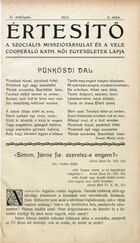
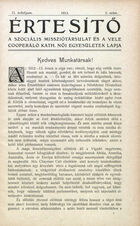
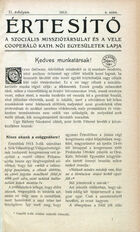
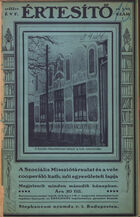
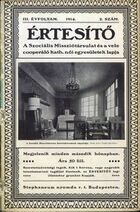
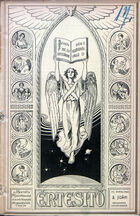
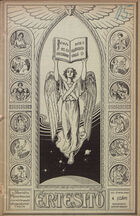
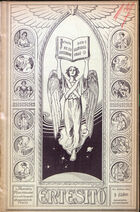
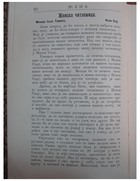
![对于女界身体残毁之改革论 [On Reforming the Practices of Maiming Women’s Bodies] 对于女界身体残毁之改革论 [On Reforming the Practices of Maiming Women’s Bodies]](https://d3crmev290s45i.cloudfront.net/content/1008308xxx/1008308247/1008308247-size-exact-140x0.jpg)